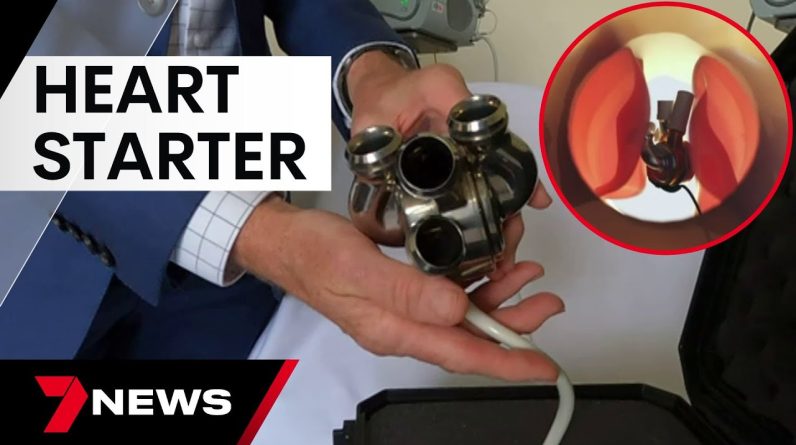A large outbreak of gastro is happening in Queensland as health authorities urge people not to go swimming in public pools for at least two weeks.
Gastro Outbreak Raises Alarms in Queensland’s Pools
The recent surge in gastro cases linked to Queensland’s pools has sparked widespread concern among health officials. As the outbreak continues to escalate, the focus on preventing further spread becomes increasingly urgent. With children under nine being notably vulnerable, the implications extend beyond individual health risks to potential broader community impacts.
The necessity of stringent sanitation protocols and heightened public awareness in public swimming facilities cannot be understated. These developments prompt crucial questions about the effectiveness of current containment measures and the collaborative strategies required to address this pressing public health issue.
Key Takeaways
- Over 820 cases reported in Queensland this year, 13 times more than last year.
- Majority of cases in West Moreton, Darling Downs, Central Queensland, Townsville, and Mackay regions.
- Children under nine are the most at risk group, with 40% of cases.
- The outbreak is commonly contracted at public pools and water parks.
Outbreak Overview
The current gastro outbreak in Queensland has seen a significant surge in reported cases compared to the previous year, with over 820 cases documented thus far. This figure represents a substantial increase, with 13 times more cases reported than in the same period last year.
The outbreak is primarily linked to a highly contagious gastro strain that is rapidly spreading, especially in public pools and water parks. Regions most affected include West Moreton, Darling Downs, Central Queensland, Townsville and Mackay.
Alarmingly, similar increases have been observed in New South Wales and Victoria. Public health authorities are on high alert, emphasizing the need for stringent preventive measures to curb the spread of this outbreak.
Risk Factors
Amidst the surge in reported gastro cases in Queensland and the heightened concern from health authorities, understanding the key risk factors associated with this outbreak is paramount.
Children under nine are particularly vulnerable, accounting for 40% of cases. The causative agent, Cryptosporidium, is often acquired through contaminated water or food. Transmission occurs through contact with infected individuals or animals, making swimming pools and recreational water facilities common sources of infection.
Symptoms of this gastro strain include diarrhoea, nausea, vomiting, fever, headache, and loss of appetite. Recognizing these risk factors is crucial for the public to take necessary precautions and minimize the spread of the outbreak.
Symptoms and Contagion
Understanding the symptoms and contagion of the gastro outbreak in Queensland is crucial for effective management and prevention strategies. The main symptom of cryptosporidiosis, the prevalent strain in the outbreak, is diarrhea, especially common in children. Additional symptoms include nausea, vomiting, fever, headache, and loss of appetite. It is essential to note that infected individuals can remain contagious even after their symptoms have resolved.
To prevent further spread, those experiencing symptoms are advised to avoid public swimming for at least 14 days post-infection. Queensland’s Chief Health Officer emphasizes the importance of prevention and hygiene practices in controlling the outbreak. These measures are vital in curbing the spread of the highly contagious gastro strain in public settings.
Prevention Measures
Vital prevention measures must be diligently followed to mitigate the spread of the highly contagious gastro strain in public settings. Individuals experiencing symptoms should refrain from swimming in public places to prevent further transmission.
Regular handwashing and strict hygiene practices are crucial to reduce the risk of infection. Proper sanitation and chlorination of swimming facilities play a significant role in preventing the spread of the gastro outbreak.
Educating the public on the risks and modes of transmission of gastro is essential for raising awareness. Prompt reporting of symptoms and seeking medical advice are recommended to address the illness effectively.
Public Health Response
In response to the escalating gastro outbreak in Queensland, health authorities are implementing strategic measures to contain and manage the increasing number of cases. Urgent actions include urging the public to adhere to prevention guidelines, monitoring and tracking cases to contain the spread, collaborating with other states facing similar increases, and providing guidance on managing gastro outbreaks in public settings.
Queensland’s health authorities are working diligently to address the outbreak’s impact and emphasize the importance of prompt reporting of symptoms and seeking medical advice. By emphasizing prevention measures, such as proper sanitation and chlorination of swimming facilities, and educating the public on the risks and transmission of gastro, health authorities aim to curb the outbreak and protect public health.
Impact on Public Health
With the gastro outbreak rapidly spreading in Queensland and affecting a significant number of individuals, public health officials are closely monitoring the escalating impact on community well-being.
The increasing number of reported cases, particularly in regions like West Moreton, Darling Downs, Central Queensland, Townsville, and Mackay, is raising concerns about the strain on healthcare resources and potential long-term health consequences.
Children under nine, who account for 40% of cases, are especially vulnerable, highlighting the need for targeted interventions. The symptoms of gastro, including diarrhoea, nausea, vomiting, fever, headache, and loss of appetite, not only affect individual well-being but also pose a risk of transmission in public spaces. Heightened awareness, preventive measures, and coordinated efforts are crucial to mitigate the impact on public health.
Collaborative Efforts
Efforts for collaboration among health authorities in Queensland and other affected states have been intensified to address the rising gastro outbreak and its impact on public health. Queensland health authorities are working closely with their counterparts in New South Wales and Victoria, where similar increases in gastro cases have been reported. By sharing information, best practices, and resources, these collaborative efforts aim to contain the spread of the highly contagious gastro strain and mitigate its effects on public health.
Coordination among states is crucial in implementing consistent prevention measures and response strategies to manage the outbreak effectively. Through joint initiatives and communication channels, health authorities are striving to enhance surveillance, track cases, and provide unified guidance to protect communities from further escalation of the outbreak.
Albion News is a great place to find informative, up-to-date news articles. We provide a wide range of unique articles that offer an interesting perspective on current events from around the world and from various different sources. You can easily search for the topics that matter most to you and explore in-depth pieces that provide insight into the issues and important debates occurring today. Albion News helps you stay informed with carefully researched and credible stories!







